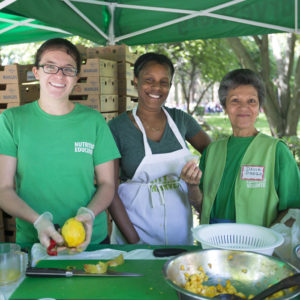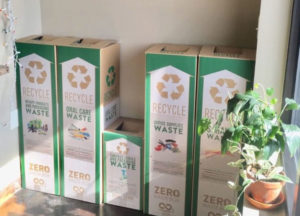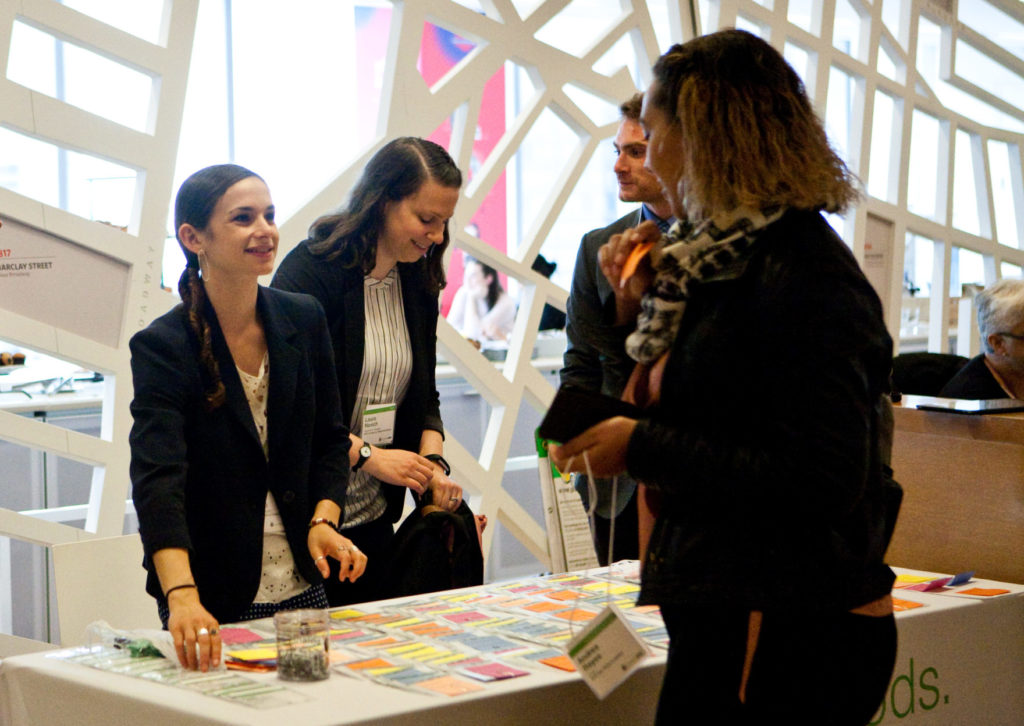
Source: cityharvest.org
Turning your next event into a zero-waste event is a fantastic way to contribute towards local, national, and global sustainability goals and raise awareness of the ever-growing waste streams. It’s also a truly grassroots way of getting people involved in the zero-waste movement, leading by example and showing everyone involved exactly how zero waste can be achieved.
Current definitions of zero-waste events dictate that at least 90% of the waste generated before, during, and after the event is diverted from landfill, and while it may sound difficult to reach these levels of diversion, any event can be made into a zero-waste event with some forward planning and the implementation of better waste management systems.
Of course, organizing large events with 100,000 attendees will prove more difficult than organizing a zero-waste school event, however, with the right tools and information in your hands you might be surprised at exactly what can be achieved! In fact, with interest in organizing sustainable events on the rise, there’s more resources available than ever before to enable cultural, music, sporting, culinary or any other type of event to place waste reduction at the top of the agenda!
To help you manage the many moving parts it takes to organize any type of event, we’ve created a zero-waste event guide to show you how you can reduce the amount of waste generated both before, during, and after the big day.
Planning a Zero Waste Event
The key to any successful zero waste event is planning. Everybody on board should be aware of your zero-waste event ideas and aligned with your goals. It’s a good idea to reach out to the venue first and inform them of your waste diversion plans, ensuring everybody is aware and educated on how to correctly divert waste at the event itself.

Source: causeartist.com
You should inform the venue and its staff whether you intend to use things like reusable or compostable plates, whether disposable items will be allowed or whether you want all types of service ware and cutlery to be washable and reused. You will also need to inform your venue of who is in charge of cleanup after the event, with venues very often taking care of reusable service ware but unlikely to deal with your waste bins.
Even if the staff has no prior experience in working with zero-waste events, you may be surprised at their adaptability and willingness to learn if you communicate your zero-waste goals. Additionally, planning collection services for recyclables in tandem with the venue will make the entire process more efficient.
Finally, when it comes to planning your event, you need to consider the waste that cannot be diverted from landfill and that cannot be recycled. Donation of all those materials that cannot be recycled to someone who can use them should be considered. Artists are often on the lookout for materials that most others have no use for, and there are online re-sale stores available that will accept donations for most materials.

Communication for Your Zero Waste Event
Include information about zero waste on the event invitation and ensure everybody is aware that it is a zero-waste event prior to attending. Favor digital promotions through email or social media over printed media, since it saves on paper waste, however, be sure to emphasize that this is a zero-waste event and provide some general information about zero waste on the invitation to both avoid confusion and pique people’s interest.
Many people may be attending their first zero-waste event, so clear communication is extremely important. Similarly, many people may be finding out about zero waste for the first time, therefore do everything you can to make this a positive and informative experience for everyone.
The greater the engagement levels people have with your communication strategy, the higher chance that they will attend and become motivated to get involved in the zero-waste movement themselves. At your event, clearly communicate what you are trying to achieve, and the measures put in place in order to make the event a success for all stakeholders—from producers through vendors, to service staff and consumers.

Source: politico.com
Clear Signage During Your Zero Waste Event
Clear signage is crucial to successfully achieving your zero-waste event goals. Hang signs in areas around your event and ensure that everyone working or volunteering at the event is informed on how to correctly answer any possible zero-waste-related questions or queries people might ask.
You need to also place signs on your bins to ensure the right waste is placed in the right bin and make recyclable drop-off points easy to access. This can be achieved with comprehensive waste stations that color-code each type of waste for instant identification.
When communicating your zero waste event goals both before and during the event, it’s also useful to announce what is compostable and what is recyclable, and why this is important. Spend a few moments to inform everybody about signs and their meanings during this announcement—even if this means using infographic handouts—that are fully recyclable, of course!
Catering for Your Zero Waste Event
Food waste is a global crisis, and the United States alone wastes almost half of its food supply every year. As well as this, many food products arrive and are served in excessive and unnecessary packaging. Diverting food waste should therefore be a top priority at your zero-waste event.
 An accurate headcount of attendees at your zero-waste event will allow you to order the correct amount of food and eliminate the risk of over-ordering. Also, consider local catering companies who use seasonal produce as this reduces transportation, the use of natural resources, and puts money back into your local economy.
An accurate headcount of attendees at your zero-waste event will allow you to order the correct amount of food and eliminate the risk of over-ordering. Also, consider local catering companies who use seasonal produce as this reduces transportation, the use of natural resources, and puts money back into your local economy.
Make sure to communicate your zero-waste goals to vendors and inform them of your expectations. If food is left over, hand it out to people to enjoy as leftovers or donate it to people in need in your area. Finally, single-use products should be avoided at all costs, and any vendor that attempts to bring Styrofoam to the party should be warned ahead of time.
 Compost and Recycle During Your Zero Waste Event
Compost and Recycle During Your Zero Waste Event
When aiming for zero waste, composting is one of the best practices you can implement. Composting quite literally makes gardens out of garbage, and your zero-waste event presents a great opportunity to inform others of the benefits this amazing practice provides.
As mentioned within the planning stage, it’s beneficial to decide who will be responsible for correctly disposing of waste in composting bins, whether it is the venue staff or the attendees themselves. Regardless of who is responsible, everybody should be aware of what can be composted and what can be recycled.
Not only will this ensure people follow correct waste disposal practices at your event, but it will also inform people of how to correctly dispose of waste after your event. Finally, communicate with your local government or environmental agency to decide on the best place to take your compostable products after the event; commercial compostable facilities are often the best choice to ensure organic materials are processed correctly.
 Post-Event Analysis
Post-Event Analysis
Reflecting on what you and everyone involved has achieved after the event is an important part of the process, identifying initiatives that worked and those that didn’t. Collating and analyzing data on how much waste you have diverted from landfill is also a great way to boost your sustainability credentials while ensuring you have reached your zero-waste goals.
Feedback should also be encouraged from attendees, allowing you to refine your planning, communication, and of course practice to bring your next zero-waste event even closer to zero. Like everything in life, zero-waste event planning gets better with practice, so don’t be discouraged if you don’t achieve everything you set out to on your first try.
Raising awareness and encouraging others to engage in zero waste is just a reward for all your efforts, however, since zero waste is a journey and not a destination, there are always new avenues to explore. Armed with your experience and the unique feedback of those who attended, you’ll clearly see new ways to divert even more waste away from landfill, reducing your impact on the environment even further.
If your business or organization is considering holding its own zero waste events in your community, speak to one of our TRUE Advisors today who will be happy to discuss your new-found knowledge of zero-waste event planning and offer further guidance. Additionally, subscribe to zerowaste.com and keep up with all the latest zero waste news and insights on the blog.

